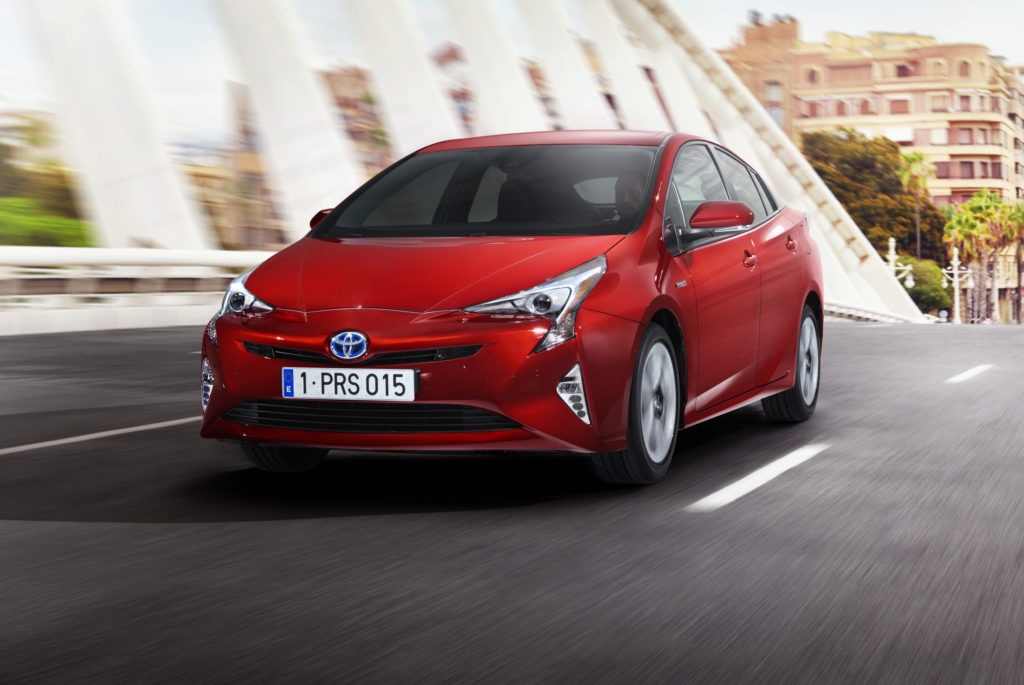Toyota takes stake in Mazda to promote EV technology as Nissan sells battery company
08 August 2017

08 August 2017
Japanese vehicle manufacturer Toyota is to take a 5% share of Mazda, as part of an alliance that will see the companies build a US assembly plant and work together on the development and production of electric vehicles (EVs).
While a majority of work will focus on its new assembly plant, which will cost a total of $1.6 billion (€1.4 billion) and produce around 300,000 vehicles a year, employing 4.000 people, the alliance will also see Mazda able to draw from the experience of Toyota in the area of electrification. This is a growing market, and with China looking to introduce quotas on EV sales, while European countries such as the UK and France bring in petrol and diesel bans, the smaller company cannot afford to be left behind in the technology stakes.
Toyota itself risks falling behind in the race to build EV fleets. The manufacturer prefers hybrid technology, being a pioneer in the field with its Prius range. Speaking in April 2017, a Toyota executive said: ′The Prius and other hybrid cars are central to our green car strategy″¦ But in China’s view, the Prius is no more than a gasoline car. We have no choice but to get over our EV allergy and come up with an electric car.’
Marking the agreement, Toyota President Akio Toyoda said: ″The greatest fruit of our partnership with Mazda is that we have found a new partner who truly loves cars. It has also sparked Toyota’s competitive spirit, increasing our sense of not wanting to be bested by Mazda. This is a partnership in which those who are passionate about cars will work together to make ever-better cars. It is also the realisation of our desire to never let cars become commodities.
′There will be new rivals appearing – Apple, Google – these are IT companies, we also need to compete with them too.’
Representing Mazda, President and CEO Masamichi Kogai said: ‘Nothing would please me more than if, through this alliance, we can help to energize the auto industry and create more car fans by bringing together two competitive spirits to spur each other on, leading to innovations and fostering talent and leaders.’
Toyota has set a goal for all of its vehicles to be zero emission by 2050, and alongside its EV aspirations, the company has also been investing in hydrogen technology, while rivals have been solely concentrating on EVs.
As part of the agreement, as well as electric car technology, Toyota and Mazda will work together to develop in-car information technologies and automated driving functions. A stake in Mazda may also prevent future incursions by tech companies.
With an R&D budget of around 140 billion yen (€1.1 billion) this year, a fraction of Toyota’s 1 trillion yen, Mazda lacks the funds to develop electric cars on its own, a predicament shared by Subaru and Suzuki.
Meanwhile, Nissan has confirmed the sale of its electric battery business to Chinese investment firm GSR Capital for an undisclosed sum. Businesses to be sold include battery operations in the US, Britain and Japan. Talks had been ongoing since May 2017.
Nissan will first take full control of its battery subsidiary, which is called Automotive Energy Supply Corp., by buying the combined 49% minority stake held by NEC Corp and its subsidiary NEC Energy Devices, before selling to GSR.
The battery manufacturer produces lithium ion cells for the Nissan Leaf electric car. GSR sees value in building an independent battery supplier to multiple automakers rather than simply producing for Nissan.
The Japanese manufacturer has been selling stakes in non-core businesses to focus on developing technology including electric powertrains and autonomous driving, in a move similar to BMW, which has been cutting costs to focus on its research program.
Photograph courtesy of Toyota